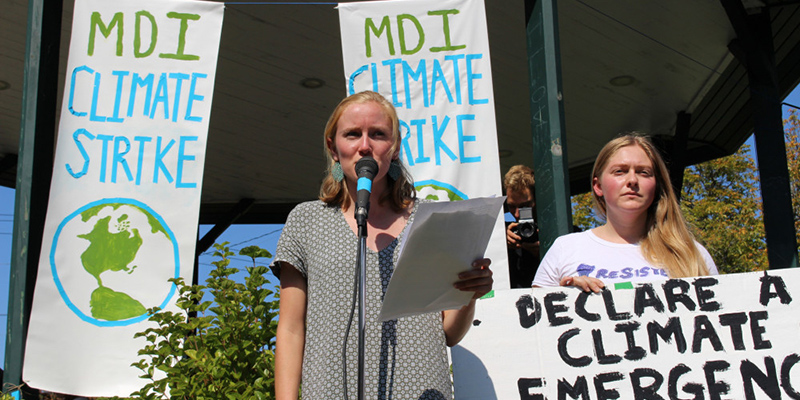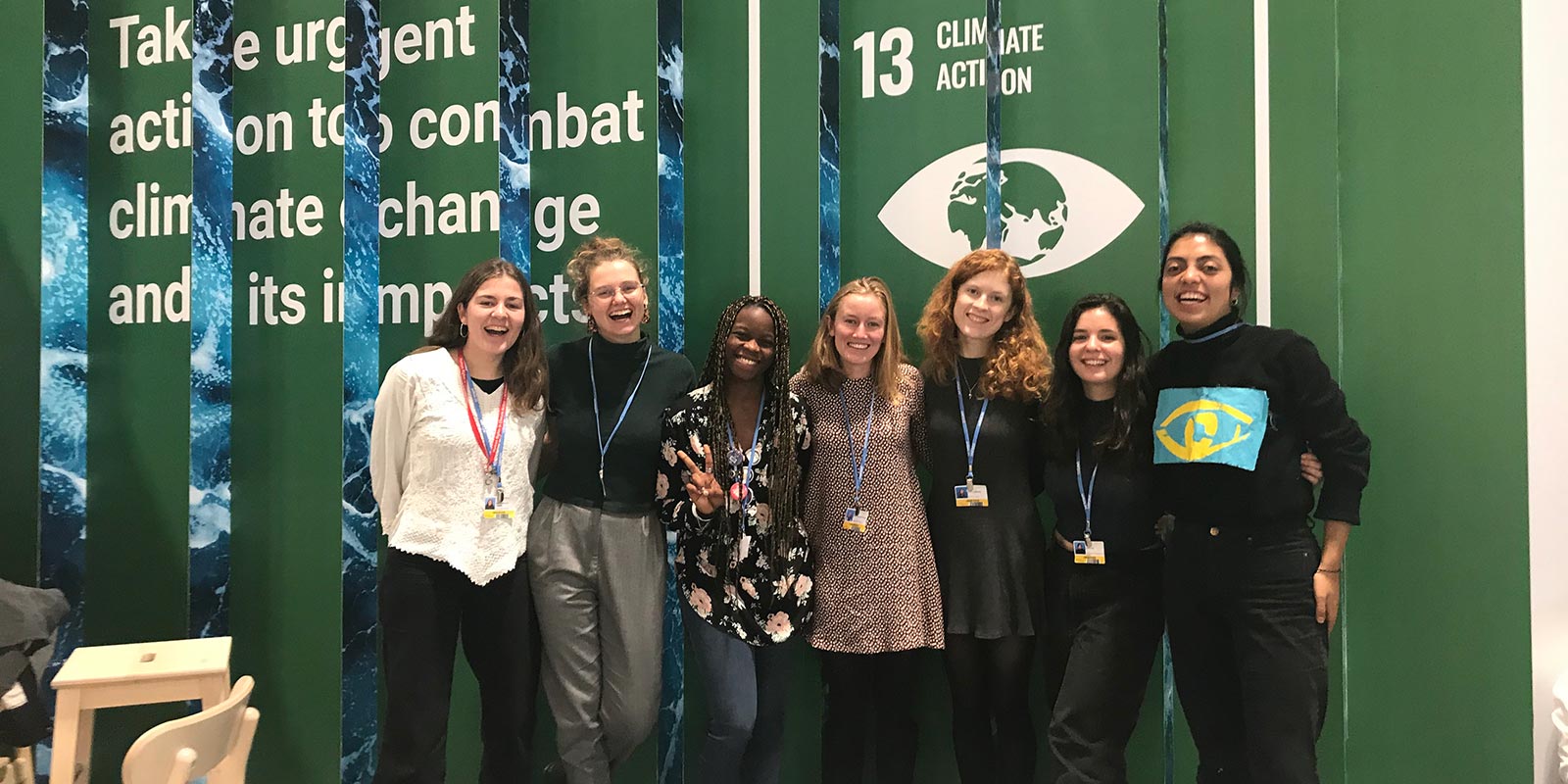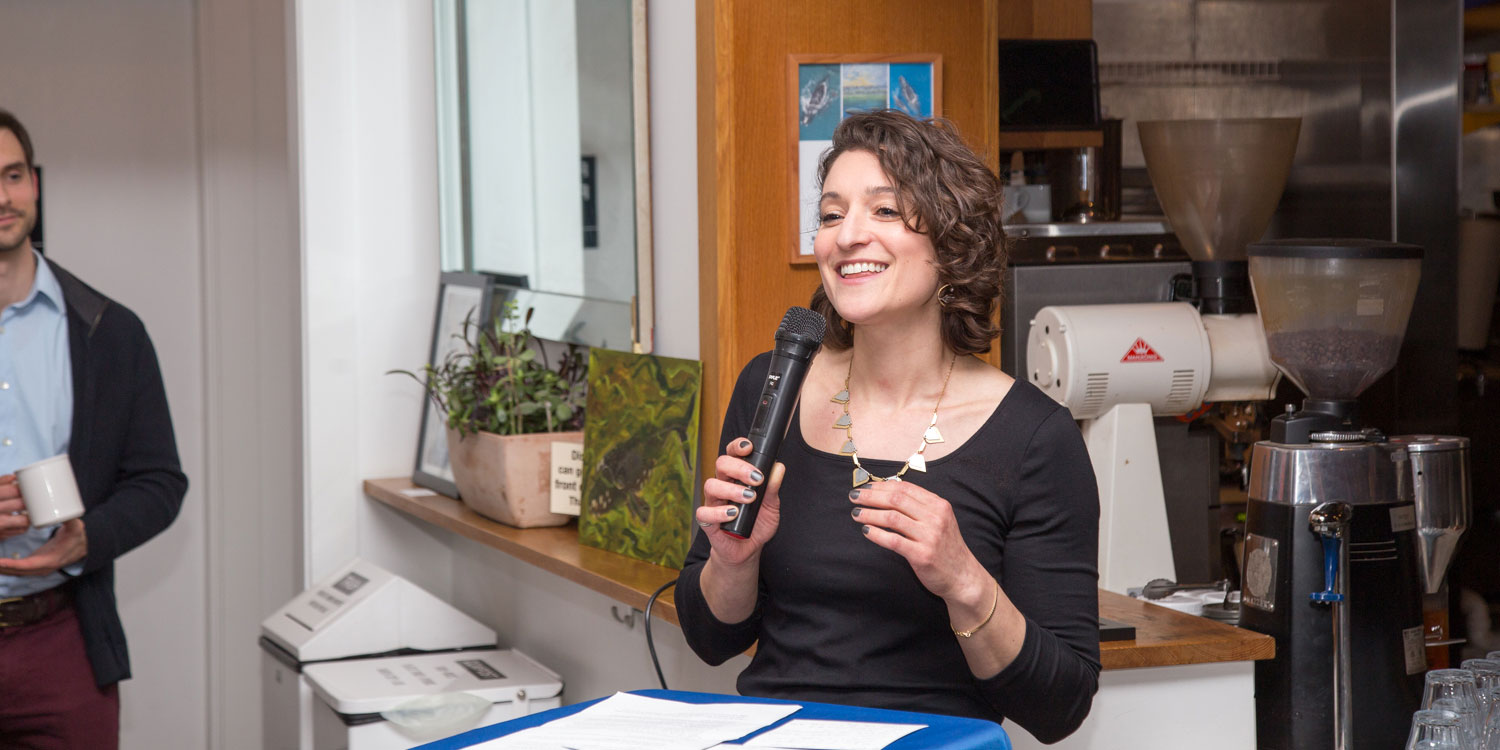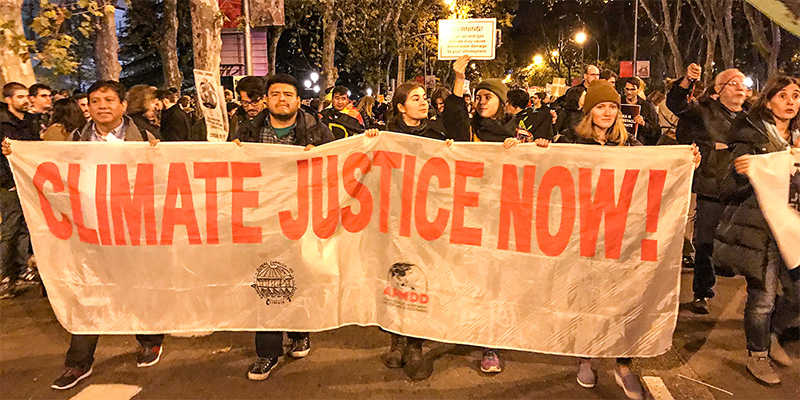Last Spring, Ania Wright stood in front of Maine legislators and asked them to include a youth voice in their plans to combat climate change. Newly elected Governor Janet Mills was preparing to pass historic legislation to slash greenhouse gas emissions in the state and establish a climate council to lead those efforts. So, the college junior traveled two hours from her Bar Harbor-based campus to the state capital to speak on behalf of youth across Maine.
Even at 20 years old, Wright had seen firsthand how the fate of future generations could get lost in the shuffle when career politicians debated climate. To ensure her home state considered a youth perspective, she seized the opportunity to address Maine lawmakers about the proposed climate bill. Ultimately, Governor Mills did appoint a youth voice to the newly created climate council: Wright herself.
When I asked her about the experience, she replied modestly. “I threw my name in the ring for wherever I could be the most helpful, and they ended up selecting me for the climate council,” she says. I can see why. Wright is clearly passionate about inclusive climate solutions and has an open, confident way of speaking that puts a listener at ease. But her tone is all business as she segues into what serving on the climate council means.
“My role is bringing the next generation and future generations into the conversation,” she says. “And also pushing as much as I can for the boldest decisions because I’m representing entire generations and not a company or a nonprofit or an organization.”

It’s a daunting task, but one Wright feels up for. She’s grown up in the era of climate concern – a member of what is becoming known as the climate generation. Since starting college, she’s been involved in a number of climate justice groups and organized her share of strikes, rallies, and days of action at the statehouse. Now 21, she’s attending council meetings, organizing other youth activists, and helping Bar Harbor create a climate emergency declaration – all while finishing her final year of college.
She’s also attending global climate meetings. Two years ago, she flew to Poland for COP24 – the 24th annual United Nations climate conference – and had the opportunity to work one-on-one with Swedish activist Greta Thunberg. She was between sessions at last fall’s COP25 in Madrid when we first connected over spotty wifi to chat about her work in Maine.
Like Wright, I’ve been focused on climate change for the past three years, highlighting CLF’s clean energy solutions and our work to end fossil fuel use in New England. But my role is largely behind the scenes, providing support for our frontline advocates. Wright works on the frontlines herself, using an activist approach to push her home state to seriously, and equitably, tackle the climate crisis. Through her justice-centered approach, she joins those who are working to address climate change from a moral, ethical, and political stance, not just an environmental one.
I wanted to get her perspective on the bigger-picture changes needed to combat climate change – the sort of systemic change she and CLF are helping to bring about from different angles.
“When you look at who’s responsible for the biggest climate impacts, it’s not individuals. It’s big corporations and big governments,” Wright says. I’d asked her about this idea of systemic change – altering the fundamental systems that underly our day-to-day lives rather than changing individual behaviors. In my time with CLF, I’d come to understand that individual actions like taking public transit and eating less meat weren’t going to be enough to solve climate change on their own, and I’d become increasingly frustrated by the media’s focus on them.
“I think it’s really easy to get bogged down when you’re just thinking ‘oh I should recycle this’ or ‘I should drive less,’ when really we need to address the system issues, and not the individuals,” she says.

This is where climate legislation comes in.
A strong climate law enables a state to work towards systemic solutions to slashing the emissions that cause climate change – and ensure the benefits of climate action reach everyone. Changes we cannot make as individuals – like capping pollution from power plants, mandating a certain amount of a utility’s energy is from clean sources, ensuring energy efficiency benefits for low-income residents – can best be done through state law. In this way, they are far more effective than any individual action could hope to be.
Here in New England, only Massachusetts, Connecticut, and Maine have binding laws that set enforceable limits on the emissions that cause climate change – the same emissions scientists say must drop to net zero before 2050 to avoid the worst effects of climate catastrophe.
These laws take a holistic approach to decarbonization – getting polluting fossil fuels like oil and gas out of our lives. “A climate law establishes levels for a state’s greenhouse gas emissions economy-wide,” explains my colleague Emily Green. “So that means setting limits on the greenhouse gases that come from transportation, from electricity production, and from our buildings.”
As a Senior Attorney at CLF, Green has worked on climate and environmental issues in Maine for the past six years. She was on the front line of getting the state’s climate bill passed into law and now sits on the climate council’s working group focused on how to effectively limit emissions from transportation. She radiates optimism as we talk, despite the enormity of the issues we’re discussing.

“Maine had a climate law on the books that was sort of just sitting there,” she tells me when I ask how the 2019 law came to be passed. “Both the environmental community and Governor Mills took aim at that old legislation, working to enhance it and turn it into something that was actually binding and that would make real progress toward our climate objectives.”
That binding piece is crucial. If a law doesn’t have teeth, there’s no accountability and it’s unlikely to be successful. (For evidence of this, just look to Vermont. Despite setting goals in 2006 to cut carbon pollution, its emissions have instead crept up 13% since 1990.) Another critical component of these laws is the setting of milestones along the way, usually for 2030 and 2040, to ensure states stay on track to reach their ultimate 2050 emissions targets.
But beyond mandatory targets, what makes for a good climate law?
“Having a tight timeline, for one,” Green says. Governor Mills gave the climate council one year to come up with recommendations for how the state can reach its targets. It’s ambitious, but there’s no time to waste with climate impacts already at our doorstep.
“Creating an inclusive process is also key,” Green adds. “We want to make sure that we’re hearing from different people in Maine and not just the usual suspects.” It’s only by including diverse voices that the climate council can ensure that its decisions don’t make those who are already marginalized or struggling worse off. Climate programs should lift them up and solve more problems than one.
Such inclusivity has been rare or altogether lacking for decades. Both the mainstream environmental movement and local governments have a history of leaving marginalized communities out of the conversation. Polluting power plants are more likely to be built in low-income, immigrant neighborhoods, and communities of color, whose residents don’t have the resources to fight back. And after decades of discriminatory housing policies, these same communities are also disproportionately burdened by climate impacts such as heat stresses and flooding.
But policy doesn’t have to reinforce these inequities. With the need to overhaul entire systems – how we heat and power our homes and businesses, how we get from place to place, what we eat, and where it comes from – we have the chance to address myriad interconnected issues at the same time.
“The climate crisis is intertwined with so many other systemic issues in our society – issues of racism and sexism and colonialism and even issues with capitalism,” says Wright. “In solving the climate crisis, we also have this opportunity to solve some of these other issues we see in our society.”

There’s still a lot of work ahead – in some states more than others. While Vermont had made great progress towards passing a climate law during this year’s legislative session, those efforts may be delayed because of the COVID-19 crisis. Both New Hampshire and Rhode Island, meanwhile, have waffled for years around putting an enforceable climate law on the books.
This doesn’t mean change won’t come, though. Both Wright and Green agree that the climate crisis movement is generating momentum, at last, bringing change in its wake.
“I think the youth movement is really inspiring,” says Wright. “I think it’s because of our perspective of so much hope and looking towards the future – that’s really exciting to me.”
I find her approach uplifting. Maine is making progress on climate, and so are many other states throughout New England and beyond. We don’t need to despair just yet.
“Just to keep fighting for what feels important, and working every day, is really good,” Wright says. It’s part of what keeps her hopeful, despite the magnitude of the problem.
It’s easy to forget that she’s still a college student. If it weren’t for a flash of bright pink socks and a distinct lack of legal jargon in our conversation, I might lose sight of the fact that Wright isn’t a seasoned lawyer like Green. And while she might be headed to law school eventually, she still has to graduate and decide on that ultimate path.
That said, if she wasn’t an activist, splitting her time between classes and climate action, Wright would be studying agriculture and trying to start her own farm. “I really love agriculture and farming,” she says, despite her call to climate justice work. “Maybe I’ll do it in the future anyway. But for now, I have other things.”
